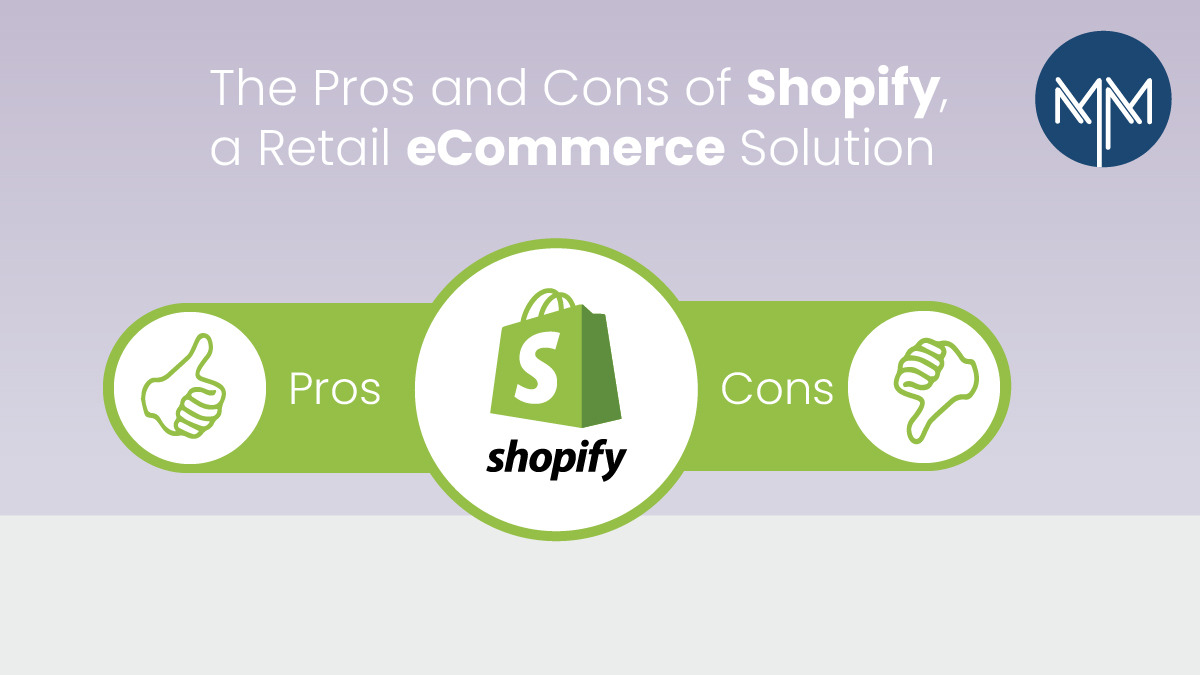Shopify is one of the most successful e-Commerce platforms because of its user-friendly interface & customer-friendly, built-in features. The process of initiating an online store has become simpler and DIY with Shopify.
If you are evaluating the Shopify e-Commerce solution, let’s have a quick look at some of the pros and cons of the platform. It would offer a comprehensive understanding of how it can impact your online business.
Pros:
- Built-in Features: With dedicated built-in features, Shopify could be the ideal one-stop solution for most e-commerce businesses. By choosing a monthly subscription of Shopify that starts from as little as $29, you can manage all operational aspects of e-commerce sites. The automation feature is also helpful to ensure you are in regular touch with your customers helping to enhance engagement.
- Customized Design And Theme: The Shopify Theme Store offers a wide range of customizable designs. You can choose the one that is most relevant for your business and product category.
- Mobile Optimized Solutions: As most online traffic is generated from mobile devices, all designs of Shopify are mobile-friendly and optimized to give the best experience to customers with a mobile-first mindset.
- Marketing Tools With SEO Features: SEO is a critical requirement for organic traffic generation and Shopify provides a wide range of features related to SEO that will help optimise online stores to drive more traffic. The regular updates ensure that your site is in sync with the latest Google algorithm.
- Easy to Configure And Integrate: With 24*7 support at Shopify, you can start and operate the e-commerce site with minimum tech resources. During the initial trial phase, you can learn the operations from the tutorial videos as it does not require any coding knowledge. Additional, easy integration of features like secured payment gateways ensure that all online payment processes are done smoothly. You can also integrate third-party applications and add more features for automation and data tracking.
Cons:
- Limited Scalability: As Shopify is highly dependent on inbuilt features, you do not get a very scalable option. Thus, you cannot have complete control of your retail marketplace. In the future, if you are looking to expand your online business by migrating to a self-hosted site, switching from the Shopify store is quite challenging.
- Lack of Complete Data Control: All data related to your e-commerce business is on the Shopify server. Now, despite high-level security, there is always a risk of a data breach. The third-party apps that you use can also get access to that data.
- Cost factors: Although the subscription package of Shopify starts at $29 per month, it comes with limited features at this level. You will end up with upgrade plans that can go up to $299 per month. There is an additional cost if you choose to pay for themes and third-party plugins. Other expenses could include a transaction fee of 0.15% to 2%. You may also have to end up paying for Marketing features like SEO support as failing to implement the same could yield low traffic for your online store.
Verdict
In general, Shopify is still the best solution to enter the world of e-business quickly. During the ongoing Covid pandemic, Shopify has offered a new lifeline to small and medium business owners with limited knowledge and resources to launch and operate an online business. More than 44 million new online businesses have been registered with Shopify in 2020. However, if you have a long-term plan for a large online store with customisation, it is recommended to consider other options as well.
If you have planned to initiate an online business store using Shopify or considering improving on your existing online store, contact the e-Commerce experts of Matrix Media team to discuss some of our strategic approaches designed for growth.


 May 31, 2024
May 31, 2024

